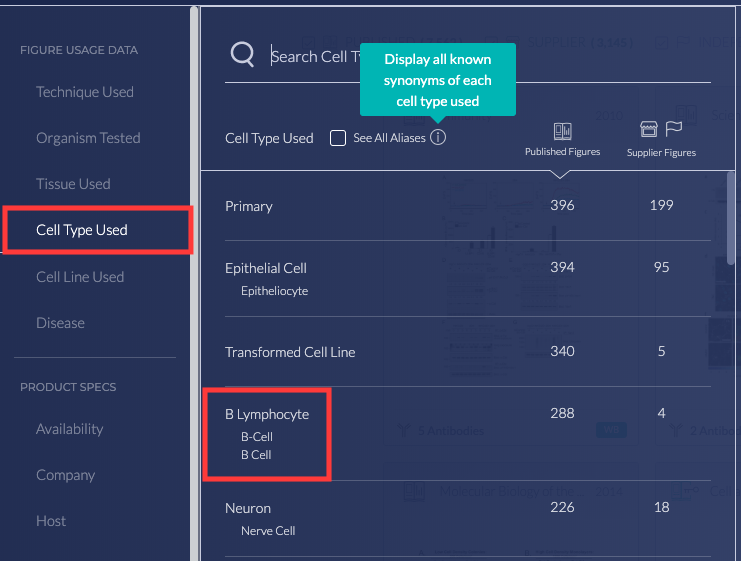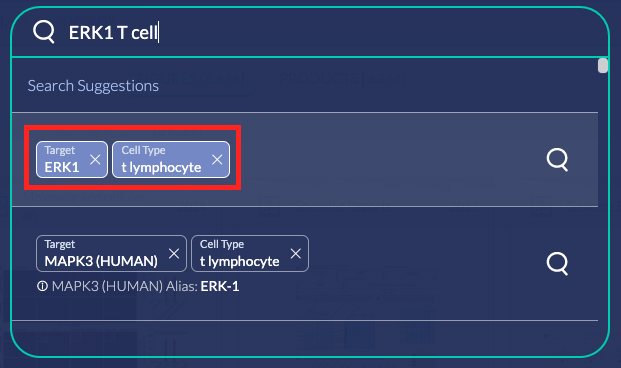When it comes to consolidating information from biomedical research papers, a common challenge is that many proteins often have multiple names, or aliases. For example, the protein "PD-L1", is also known as "CD274", and "ERK1/2" are also commonly referred to as "p42/44". That's why we mapped all possible aliases of a protein to its gene to ensure that you can see all published data for your protein of interest.
However, this nomenclatural ambiguity also affects many experimental context parameters. For example, the cell type "B lymphocytes" are also commonly referred to as "B Cells", or the organism "Mouse" as "Murine". To ensure you can find all the relevant data irrespective of how you refer to an experimental context, we have added alias lists to each context filter. As a result, when you apply the filter "B lymphocytes" as a Cell Type, you will also see results that are associated with "B Cells".
This context filter update brings improved search result accuracy and coverage. You will now see aliases displayed when you open up many of the figure usage data filters. Two aliases will be displayed by default, but if you want to see the full list, you can check the "See All Aliases" box, as seen below:

The experimental context filters that were updated include:
- Organism Used (ie. Mouse/Murine)
- Tissue Used (ie. Adipose Tissue/Body Fat)
- Cell Type Used (ie. T Lymphocyte/T Cell)
- Cell Line Used (ie. HEK293/Human Embryonic Kidney 293)
- Disease (ie. Carcinoma/Cancer)
In addition, when searching for an experimental context in the main search bar (ie. T Cell), the corresponding alias will show up as a filter option (ie. T lymphocyte), as you can see below:

What do think about the filter context update? Are you able to discover new data to help with your antibody selection as a result? Let us know in the comments below.
In our next revisions, we will also include the aliases in the "Technique Used" filter. For example, "Chromatin-immunoprecipitation Sequencing" and "ChIP-Seq".
Until then, happy researching!
